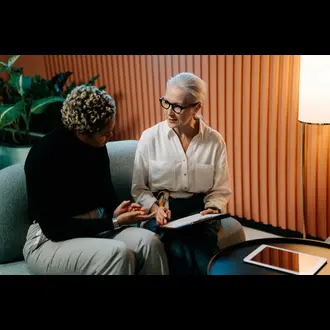Transcription Cognitive Biases and Their Influence
Cognitive biases are mental shortcuts our brain takes to process information faster, based on past experiences.
However, these shortcuts can distort our perception and decision-making, which often becomes a root cause of unnecessary conflicts.
Although these biases help us survive, if we are not aware of them, they can lead us to judge people and situations in an unobjective way.
Types of Biases and Their Consequences
There are several biases that influence conflicts.
Hindsight bias occurs when a person rationalizes an event after the fact, saying that the outcome was foreseeable or that they already knew it, which can lead to conflicts because the person using it tends to overestimate their own predictive ability.
The fundamental attribution error leads us to give disproportionate importance to a person's internal traits (their character or their personality) to the detriment of external factors.
This bias is particularly destructive in conflicts, as it prevents us from seeing the context and leads us to blame the person rather than the problem.
Confirmation bias reinforces our negative assumptions by seeking out and filtering information that confirms our beliefs.
The status quo bias occurs when a person believes that novelty carries more risks than benefits, leading them to resist change and generate conflicts with those who seek innovation.
12.3.2.
How to Mitigate the Impact of Biases.
Being aware of these biases is the first step in mitigating their impact.
By recognizing that our brains take shortcuts, we can pause, question our assumptions, and seek more information before judging.
This practice allows us to approach conflicts more objectively and compassionately, understanding that the behavior of others is not always a reflection of their character, but rather is often influenced by a myriad of factors.
Summary
Cognitive biases are mental shortcuts that distort perception and are often a cause of unnecessary conflict. Hindsight bias makes us believe we could predict an outcome.
The fundamental attribution error leads us to blame the person rather than the problem. Confirmation bias reinforces our negative assumptions by filtering information.
To mitigate the impact of biases, it is crucial to be aware of them. By questioning our assumptions and seeking more information, we can approach conflicts more objectively.
cognitive biases and their influence




